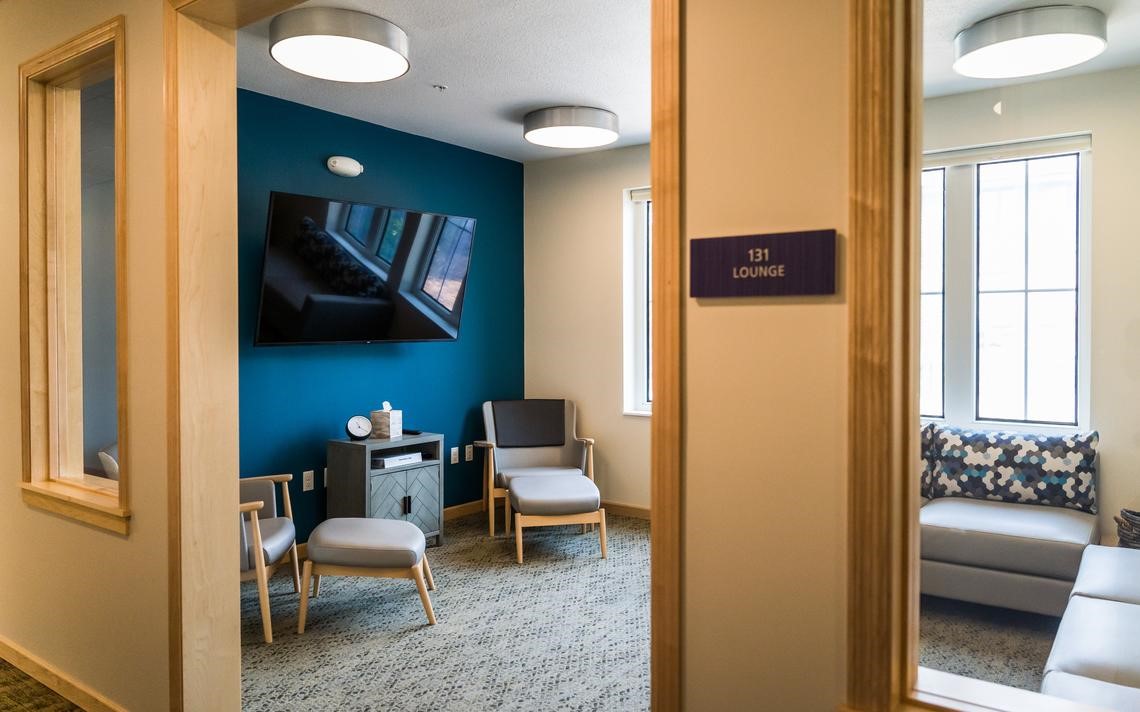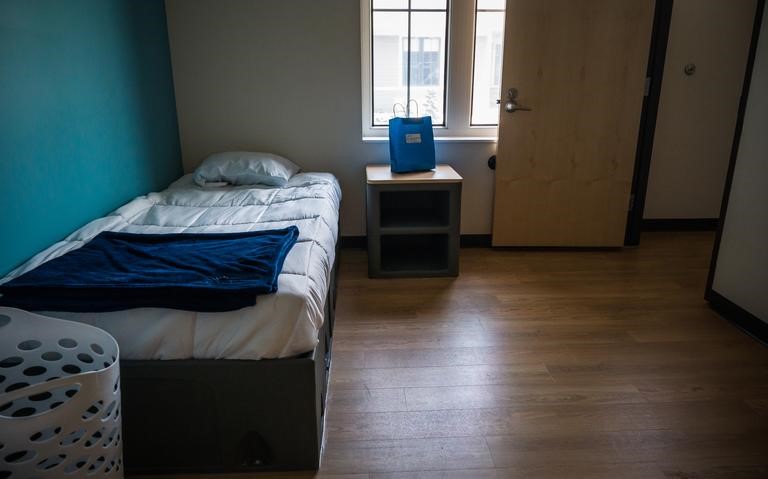This article was originally written and published by Randy Petersen of Post Bulletin.
The opening of the Southeast Regional Crisis Center’s doors Wednesday comes as an increasing number of people are becoming aware of the need.

“We have all experienced loss in some form or another through the COVID-19 pandemic,” Olmsted County Board Chairman Stephanie Podulke said during a ribbon-cutting ceremony for the facility Monday. “I think it became more and more apparent how important it is for all of us -- all of us -- to focus on our mental health and well-being.”
Nicole Mucheck, the center’s executive director, said data collected since the center broke ground at the start of the pandemic points to an increased need.
“From 2019 to 2020, there was a 24 percent increase in the number of mental health-related emergency department visits for children ages 5 to 11, and a 31 percent increase for adolescents ages 12 to 17,” she said.
Additionally, she noted only 48 percent of adults with mental illness receive treatment, and the rate of care drops to 20 percent of children.
The regional center, located on the Olmsted County government campus at 2121 Campus Drive SE in Rochester, will provide 24-hour access to mental health staff for residents of 10 southeastern Minnesota counties.
Along with the 24-hour walk-in clinic, the center will provide short-term, in-patient care for anyone 10 and older needing more than 23 hours of evaluation and treatment. With 16 beds, at least half are dedicated to young people.
Bruce Sutor, a Mayo Clinic psychiatrist and chairman of the crisis center’s executive team, said his 25 years of experience in providing mental health care in the region points to an increasing need as more people turn to emergency rooms.
“It’s clear this facility is something that is really needed,” he told the crowd of approximately 100 gathered Monday.
As one of two Mayo Clinic psychiatrists who will be working with Nexus Family Healing at the facility, he said the goal is to continue the collaborative effort that created the facility.
Ten area counties, along with Mayo Clinic, Olmsted Medical Center, the southeast chapter of Minnesota NAMI and other partners, worked to obtain funding and design the operation, with day-to-day oversight being provided through a contract with Nexus, which will have approximately 50 employees on site.
NAMI also will provide two peer-support specialists, and Olmsted County is providing a staff member to help coordinate efforts with Crisis Response of Southeast Minnesota.
Sean Kinsella, executive director of the southeast chapter of Minnesota NAMI, said the center’s collaborative effort with a dedicated focus is critical, since mental illness looks different for every person and is difficult to treat in the chaos of an active emergency room.
“It is the exact opposite of what people in a mental health crisis need,” he said of being mixed with people suffering from medical emergencies and physical injuries.
Kinsella has touted the center as an opportunity to streamline and consolidate services, so people have a place to go and get help, as opposed to trying to figure out what their problem is before determining where to turn.

State Sen. Dave Senjem, who helped secure the $5 million in state funds to build the facility, said its doors can’t open too soon.
“Even tonight, someplace in Rochester, there’s going to be a big crisis,” the Rochester Republican said, pointing to his own experience with a family member who struggled with mental illness.
While the center’s doors won’t open until 8 a.m. Wednesday, residents throughout the region do have access to help through existing mobile crisis response services, which can be reached through the hotline at 844-274-7472.
The service will remain in place as the center provides another option to access a variety of local services.
Mucheck said it’s part of the collaborative goal.
“The Southeast Regional Crisis Center will fill serious gaps in care for those experiencing mental illness by providing services at the right time, in the right place and with the right care,” she said. “It will help people survive.”
